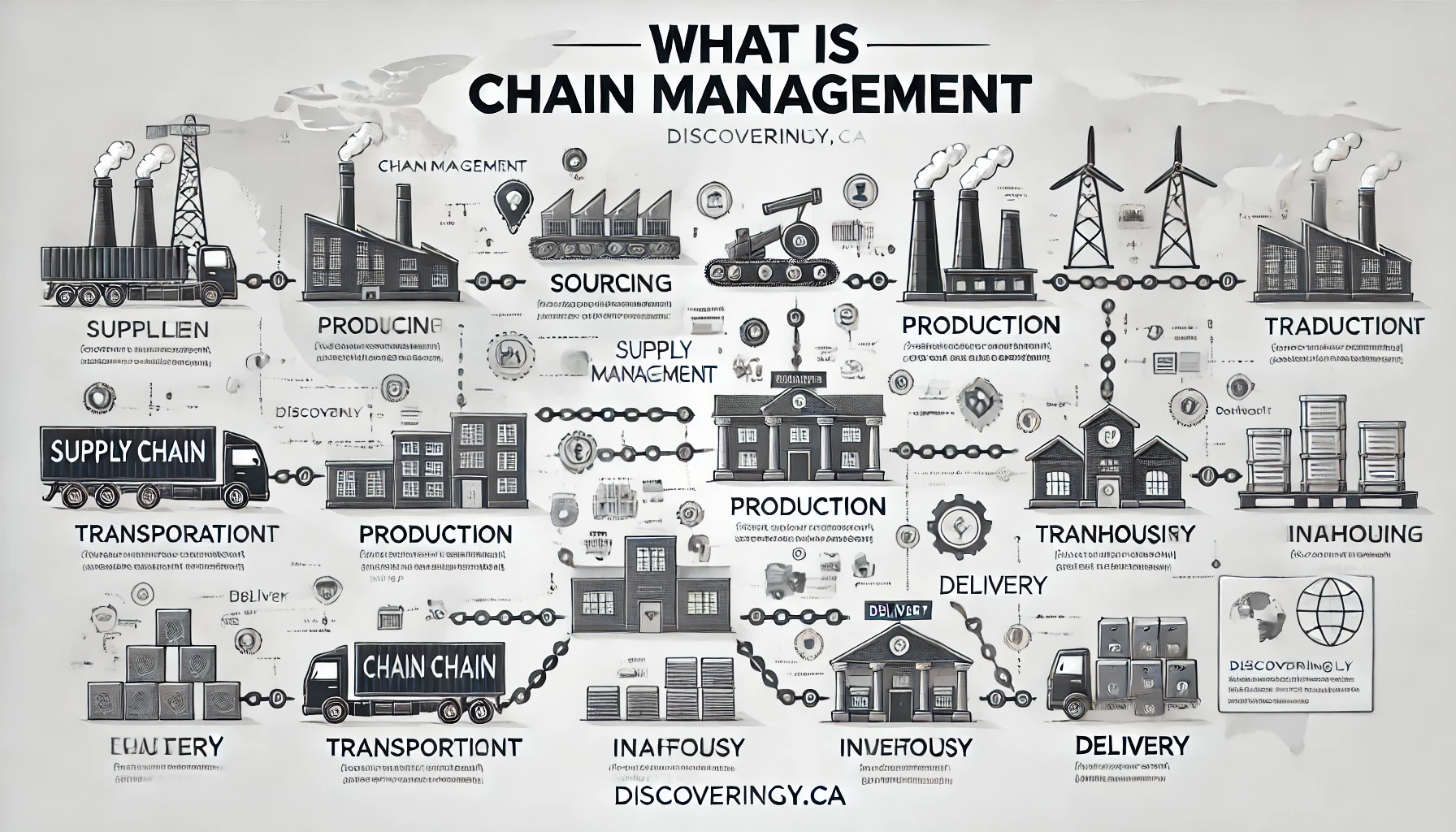What is Chain Management? A Complete Guide to Understanding Supply Chains
Introduction
In today’s interconnected economy, the success of a business often hinges on its ability to effectively manage its supply chain. Chain management, more commonly known as supply chain management (SCM), plays a critical role in optimizing the flow of goods, services, and information across every link in the supply chain. But what exactly does it entail? This guide will provide an in-depth look at chain management, its key components, and how it impacts businesses and consumers alike.
Defining Chain Management
Chain management, or supply chain management (SCM), refers to the coordination and management of all activities involved in sourcing, producing, and delivering goods and services. It encompasses every step of the production and distribution process, from raw material procurement to the final delivery of a product to the end customer. The goal of SCM is to create efficient and cost-effective supply chains that enhance customer satisfaction and boost business profitability.
Key Components of Chain Management
To understand chain management, it’s essential to break down its key components:
- Planning: This involves forecasting demand, aligning supply with customer needs, and developing efficient workflows to meet demand.
- Sourcing: Sourcing focuses on selecting suppliers, negotiating contracts, and ensuring a reliable flow of goods and materials.
- Manufacturing: This step includes production scheduling, assembling products, quality control, and managing workflows to create goods or services.
- Logistics and Distribution: Getting products to customers requires warehousing, inventory management, order fulfillment, and transportation.
- Return Management: Reverse logistics handles returns, exchanges, and defective product management, ensuring customer satisfaction and sustainability.
The Importance of Chain Management
Effective chain management is crucial for business success for several reasons:
- Cost Reduction: By optimizing every step of the supply chain, businesses can reduce waste, improve efficiency, and lower operational costs.
- Improved Customer Satisfaction: Faster order fulfillment, high-quality products, and consistent delivery times lead to satisfied customers.
- Risk Mitigation: Identifying potential risks in the supply chain, such as supplier disruptions or logistics bottlenecks, helps reduce vulnerabilities.
- Enhanced Collaboration: Effective SCM fosters collaboration with suppliers, manufacturers, and distributors, creating a more resilient and adaptable supply chain.
- Sustainability Initiatives: Many businesses are incorporating sustainability into their chain management practices to reduce environmental impact.
How Chain Management Works
Here’s a closer look at how the components of chain management come together:
- Demand Planning and Forecasting: Accurate demand planning ensures that businesses can meet customer demand without overstocking or understocking products.
- Supplier Relationship Management: Selecting and maintaining strong relationships with reliable suppliers is essential for timely and cost-effective procurement of goods and services.
- Production Optimization: Efficient manufacturing processes minimize waste and maximize productivity, leading to high-quality products.
- Inventory Management: Balancing inventory levels ensures products are available when needed without excess stock that ties up resources.
- Logistics Coordination: Seamless transportation and distribution systems ensure that products reach customers quickly and cost-effectively.
Real-World Example of Chain Management
Consider a global electronics manufacturer that produces smartphones. Effective chain management involves:
- Sourcing Raw Materials: Procuring components like semiconductors and display screens from reliable suppliers.
- Production Planning: Assembling smartphones in optimized factories with strict quality controls.
- Logistics and Distribution: Shipping finished products worldwide through efficient logistics networks.
- Reverse Logistics: Managing returns or defective units to maintain customer satisfaction.
This example demonstrates the complexity and necessity of effective chain management for smooth business operations.
Challenges in Chain Management
Despite its benefits, chain management comes with challenges:
- Supply Chain Disruptions: Natural disasters, pandemics, or geopolitical issues can disrupt supply chains, causing delays and losses.
- Globalization Complexity: Operating on a global scale introduces complexities like varying regulations, tariffs, and cultural differences.
- Technological Integration: Implementing technology solutions like AI, blockchain, and IoT requires investment and expertise.
- Sustainability Demands: Consumers and regulators increasingly expect businesses to adopt sustainable practices, adding complexity to SCM processes.
Trends Shaping the Future of Chain Management
To stay competitive, businesses must adapt to emerging trends:
- Digitalization: Technologies like AI and data analytics are revolutionizing SCM by improving forecasting, automating processes, and enhancing transparency.
- Sustainability Initiatives: More companies are adopting eco-friendly practices, reducing waste, and using sustainable materials.
- Resilient Supply Chains: Businesses are focusing on building resilient supply chains that can withstand disruptions and adapt quickly.
Conclusion
Chain management, or supply chain management, is essential for optimizing the flow of goods, services, and information across a business’s supply chain. From sourcing raw materials to delivering finished products, effective SCM enhances customer satisfaction, reduces costs, and creates a competitive edge. By understanding the key components and staying ahead of challenges, businesses can ensure seamless operations and sustainable growth.
Stay informed on supply chain management and other business insights by exploring more content on Discoveringly.ca. Empower your business journey with knowledge!






